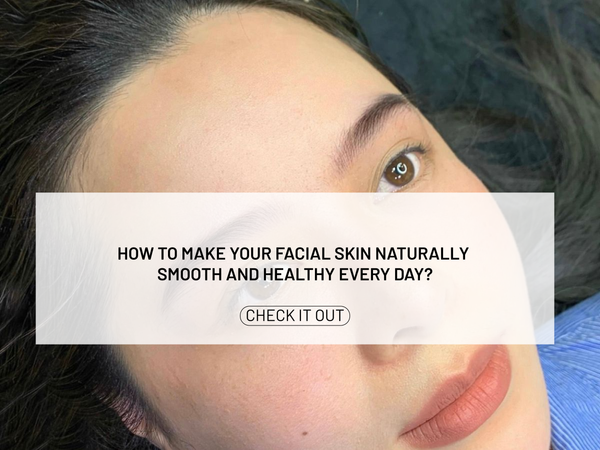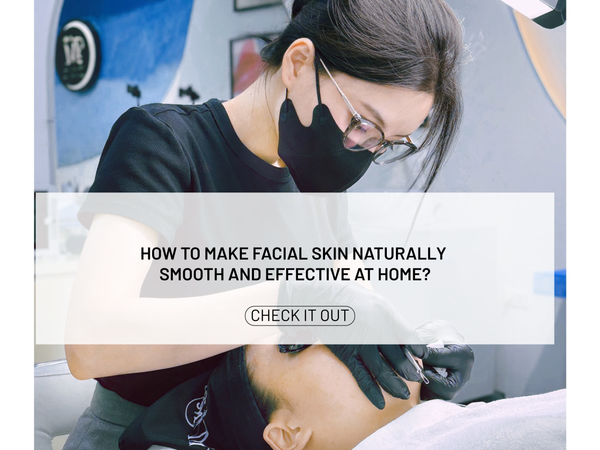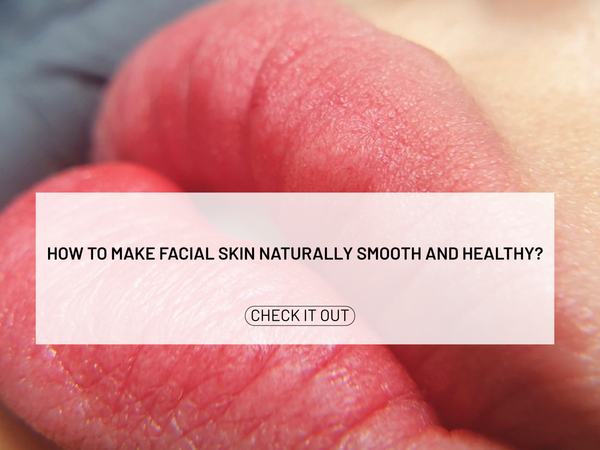Explore the Structure of Melasma: Causes and Effective Solutions
Skin pigmentation is a common issue that many people face, especially women. Understanding the structure of pigmentation, the causes of its formation, and treatment methods will help us take better care of our skin. This article will provide the necessary information so you can feel more confident about your skin.
Highlights
- Skin pigmentation is a common skin condition, often appearing in women.
- The main causes of pigmentation include the effects of UV rays and hormonal disorders.
- There are many treatment methods for pigmentation, such as using medication, laser, and chemical peels.
- Post-treatment skin care is very important to maintain effectiveness.
- Preventing skin pigmentation by protecting the skin from sunlight and maintaining a healthy lifestyle.
What is Skin Pigmentation?

Definition of Skin Pigmentation
Skin pigmentation is a condition of pigment disorder on the skin, often appearing as brown or black patches or spots. We can see skin pigmentation in many areas of the face such as the cheeks, forehead, and chin. Skin pigmentation affects not only women but is also an issue for men.
Factors Contributing to Skin Pigmentation
There are many factors contributing to skin pigmentation, including:
- UV rays from sunlight.
- Hormonal disorders, especially during pregnancy.
- Genetic factors and age.
Distinguishing Skin Pigmentation from Other Issues
Skin pigmentation is often confused with other issues such as freckles or brown spots. To distinguish, we need to pay attention to:
- Location: Pigmentation often appears symmetrically on both cheeks.
- Color: Pigmentation is darker than freckles.
- Size: Pigmentation is usually larger and has varying degrees of intensity.
We need to understand the structure and causes of skin pigmentation to find effective treatment solutions.
Causes of Skin Pigmentation

Effects of UV Rays
One of the main causes of skin pigmentation is UV rays from sunlight. When the skin is exposed to UV rays, the body produces melanin to protect the skin. However, if produced excessively, melanin will accumulate and form pigmentation spots. To protect the skin, we need to:
- Use sunscreen daily.
- Avoid going out during peak sunlight hours.
- Wear hats and sunglasses when outdoors.
Hormonal Disorders
Hormonal disorders are also an important factor. When estrogen hormones change, such as during pregnancy or when using birth control pills, it can lead to increased melanin production. To minimize this effect, we should:
- Monitor hormonal health.
- Consult a doctor when there are abnormal signs.
- Maintain a healthy lifestyle.
Genetic Factors and Age
Finally, genetic factors and age also affect the formation of skin pigmentation. If someone in the family has pigmentation, our risk is also higher. To prevent it, we can:
- Implement skin care measures early.
- Maintain a healthy diet.
- Regularly check skin condition.
Thus, understanding the causes of skin pigmentation will help us take preventive and effective treatment measures.
Treatment Methods for Skin Pigmentation

Using Oral Medications and Creams
We can treat skin pigmentation by using oral medications and creams. Some popular products include:
- Tranexamic acid: Helps fade dark spots and pigmentation.
- Azelaic acid: Has brightening effects and reduces pigmentation.
- Hydroquinone: Lightens dark skin patches.
Laser Technology for Pigmentation Treatment
Laser technology is one of the most effective methods for treating skin pigmentation today. Lasers help:
- Destroy melanin pigments causing pigmentation.
- Stimulate collagen production, helping the skin to be more even and brighter.
- Prevent pigmentation from recurring.
Chemical Peels
Chemical peels are a method that uses chemical compounds to remove dark skin layers. This method helps:
- Deep clean and remove dead skin cells.
- Stimulate new skin regeneration.
- Make the skin brighter and more even.
We need to understand these methods to choose the most suitable treatment for our skin. Post-treatment skin care is also very important to maintain long-term effectiveness.
Skin Care After Pigmentation Treatment
Nutrition and Lifestyle
To help the skin recover best after pigmentation treatment, we need to pay attention to nutrition and lifestyle. Drinking enough water and supplementing with vitamin-rich juices is very important. Some essential vitamins for the skin include:
- Vitamin A: Helps with antioxidant effects and brightens the skin.
- Vitamin C: Supports fading pigmentation and boosts skin immunity.
- Vitamin E: Keeps the skin soft and prevents aging.
Using Sunscreen
Sunscreen is one of the essential products in skin care after pigmentation treatment. We should choose a sunscreen with an SPF of 30 or higher and apply it about 15-30 minutes before going outside. This helps protect the skin from the effects of UV rays, one of the main causes of skin pigmentation.
Avoiding Stress
Stress can worsen skin conditions. We should find ways to relax such as:
- Doing light exercise.
- Engaging in recreational activities like reading or listening to music.
- Taking time for ourselves to relax and recharge.
Taking care of the skin after pigmentation treatment not only helps recovery but also prevents the recurrence of pigmentation. Be patient and maintain a daily skin care routine for healthy and radiant skin!
Preventive Measures for Skin Pigmentation

Protecting the Skin from Environmental Impacts
We need to protect the skin from harmful environmental impacts such as pollution and sunlight. To do this, we can:
- Use sunscreen daily, even on cloudy days.
- Wear sunglasses and wide-brimmed hats when outdoors.
- Avoid direct sunlight exposure during peak hours.
Maintaining a Healthy Lifestyle
A healthy lifestyle will help us effectively prevent skin pigmentation. We should:
- Eat plenty of vegetables and fruits to provide vitamins and minerals for the skin.
- Drink enough water daily to keep the skin hydrated.
- Get enough sleep to allow the body time to recover and regenerate.
Using Appropriate Skin Care Products
Choosing skin care products is also very important. We should:
- Choose products containing skin brightening ingredients like vitamin C.
- Avoid using products with harmful chemicals.
- Consult a dermatologist for the best options for our skin.
These measures not only help us prevent skin pigmentation but also maintain healthy and radiant skin.
Common Misunderstandings About Skin Pigmentation
Can Skin Pigmentation Heal on Its Own?
Many people think that skin pigmentation can heal on its own without treatment. In reality, skin pigmentation often does not disappear on its own and requires intervention from appropriate treatment methods. If not cared for properly, the pigmentation condition can worsen.
All Types of Pigmentation Are the Same
Another common misunderstanding is that all types of pigmentation are the same. In fact, skin pigmentation is divided into many different types such as superficial pigmentation, deep pigmentation, and mixed pigmentation. Each type has its own characteristics and treatment methods. Correctly distinguishing the type of pigmentation will help us choose more effective treatment methods.
Only Women Get Skin Pigmentation
Many people believe that only women get skin pigmentation. However, men can also experience this condition, although at a lower rate. Genetic and environmental factors also affect the appearance of skin pigmentation in both genders.
Conclusion
We need to understand skin pigmentation to care for and treat it effectively. Learning and consulting experts is very important to achieve healthy and more confident skin.
Skin pigmentation is a common issue that many people face, but there are many misunderstandings surrounding it. Don't let misinformation make you anxious! Learn more about skin pigmentation and proper skin care on our website. We are always ready to support you!
Conclusion
BAP injection is a modern beauty method that helps improve the skin safely and effectively. With many benefits such as providing moisture, stimulating collagen production, and restoring the skin, BAP injection is becoming a popular choice for many people. However, to achieve the best results, you need to perform it at reputable facilities and follow post-injection care instructions. Remember that skin care is not just a treatment but also a long-term journey to maintain natural beauty.
Frequently Asked Questions
What is skin pigmentation?
Skin pigmentation is a condition where brown or black spots or patches appear on the skin, commonly seen in women. It does not harm health but affects aesthetics.
What causes skin pigmentation?
Skin pigmentation can be caused by many factors, including the effects of UV rays, hormonal changes, and genetic factors.
Are there effective treatments for skin pigmentation?
There are many treatment methods for skin pigmentation such as using creams, oral medications, laser technology, and chemical peels.
Is special care needed after pigmentation treatment?
Yes, you should care for your skin according to your doctor's instructions to achieve the best results.
Can skin pigmentation heal on its own?
In some cases, pigmentation may disappear on its own, but treatment is usually needed to achieve good results.
Who is at high risk for skin pigmentation?
Women, especially during pregnancy or when using birth control pills, are at high risk for skin pigmentation.



